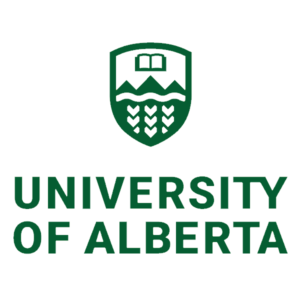The Social Accountability Fellowship is a collaboration to advance Impact, Accreditation, and Leadership by The Network: TUFH, NOSM University and the University of Limerick.
The goal of this fellowship is to design and implement social accountability principles and standards in your institution to better respond to the priority health needs of your societies, communities, and contexts.

Angel Centeno
Professor of Internal Medicine. Chair, Department of Biomedical Education, Faculty of Biomedical Sciences, Universidad Austral, Argentina.
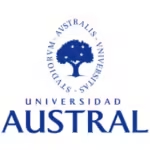
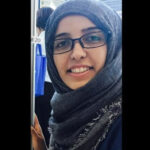
Wafa Mohamed Al Madhagi
Prof Abdul kareem alzomor, Wafa Al Madhagi, Nadia Rasha, Mohamed Al Shathi and Wala Anam are team of Al Naser university-Yemen. one of the oldest organization in Yemen and are concern in medical science. The team has verities expertise in medical science and pharmaceutical science. Also, the team has work in national accreditation and starting for the global accreditation.
- Abdul Kareem Alzomor
- Nadia Rashad

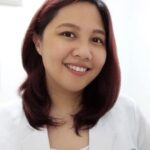
Athena Bernadette De Padua-Tan
SOCIAL ACCOUNTABILITY IN PRIMARY CARE THROUGH SERVICE LEARNING
At Mapua University School of Medicine and Health Sciences (SMHS), we are deeply committed to preparing our medical students to be not only exceptional healthcare professionals but also compassionate and socially responsible individuals. We recognize the vital importance of integrating social accountability principles and standards specifically tailored to the needs of the Philippine setting. To prepare graduates for key roles in the delivery of universal healthcare, our curriculum places a strong emphasis on primary care, preventive medicine, public health, interprofessional education, leadership, communication, and cultural sensitivity. Our LONGITUDINAL SERVICE LEARNING PROGRAM, to be implemented throughout the student journey in collaboration with community and organization partners, is an authentic and experiential approach to learning and assessment that combines education, community service, and structured reflection. This approach is crucial to better address the priority health needs of our societies, communities, and contexts. In addition to nurturing empathy and compassion among our medical students, it also exposes them to invaluable non-clinical experiences, enriching their understanding of healthcare from a holistic perspective.
- Malaya P. Santos
- Jake Bryan S. Cortez
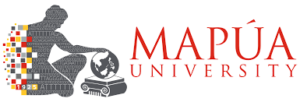
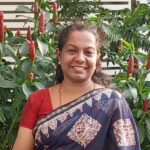
Sairu Philip
Over thirty years experience in teaching, training & research in Community Medicine ;Public Health Expert;Has worked in team with Local Self Governments in Kerala and facilitated innovative Public Health projects: Bernard Lown Scholar in Cardiovascular Health , Harvard T.H.Chan School of Public Health; FAIMER fellow ; Passionate in community based training of medical students , Medical education , Community based research and Palliative care.
- S. Sankar
- Varghese P Punnoose
- Radha Kumar
- Jayakumar T.K
- Dr. Jayaprakash

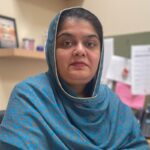
Shafaq Sultana
Dr. Shafaq Sultana is a Medical Educationist who is heading the Department of Health Professionals Education, of Indus University of Health Sciences. She has a vast teaching experience at different national and international institutes. Her areas of interest include Faculty development in teaching and learning, Assessment methods and inter professional education.
Dr. Madiha Ata and Dr Ghina Shamsi

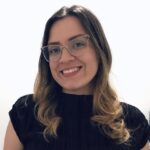
Jessiklécia Siqueira
I am a PhD student in Science Education in the Graduate Program in Science Education at UFRPE, with a master’s degree in Science and Mathematics Education from UFPE and a teacher’s degree in Biological Sciences from UFRPE. I am a member of the Research Group in Education, Public Policies, Innovation, and Technologies, and also collaborate with the Polinizar (educational immersive program). My research focus is Educational Trends, with specialization in topics such as University Extension, Social Responsibility, Educational Curation, Teacher Training, Environmental Education, and Science Education. Currently, I serve as the assistant management of extension and social accountability at the Pernambucana School of Health. My responsibilities include planning, development, and implementation of programs, operational and executive project management, internal and external communication, event organization, and alignment between extension activities and the academic objectives of the institution as well as to collaborate with local organizations to develop projects that address the needs of the surrounding communities, such as several education programs, health events, among others. In absences, I take on the responsibilities of the main management, ensuring the continuity of operations.
- Maria Dalvaneide de Oliveira Araújo
- Suelén Alves da Silva
- Suênia Tavares de Machado França
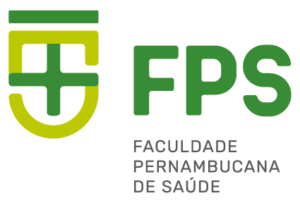
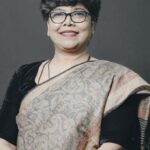
Pushpanjali Krishnappa
Dr. Pushpanjali is a highly accomplished and dedicated individual with a strong background in public health dentistry. As a public health dentist, I am committed to improving the oral health of communities and promoting preventive dental care. With a deep-rooted passion for academia, I have established myself as a prominent figure in the field of dentistry education, both as a practitioner and an educator. Driven by a genuine desire to enhance dental education standards, I have actively participated in conferences, seminars, and workshops to stay updated with the latest advances in dental research and teaching methodologies. I also possess an innate flair for research, consistently exploring innovative approaches to address oral health disparities and the social determinants of health. My work in the field of PHD and medical education has resulted in numerous published articles in reputable dental and public health journals, contributing significantly to the academic community. What truly matters at the moment is my deep drive to implement social accountability within the institution. Recognizing the significance of dental professionals actively engaging with the community, I and my team have spearheaded various initiatives to promote oral health education, preventive measures, and access to dental services in underserved populations. By diligently working with students, faculty, and community organizations, I have successfully integrated social responsibility into the institution’s curriculum, ensuring that future oral health professionals develop a strong commitment to service and community engagement.
- Silju Mathew
- Kavitha Prasad

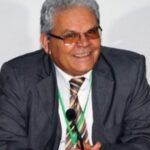
Ali Mtiraoui
Pr. Ali MTIRAOUI, has been Dean of the Faculty of Medicine of Sousse (Tunisia) since August 2011. He was, in turn, doctor in charge of a Basic Health Center affiliated with the Faculty of Medicine (4 years) there. providing clinical services to the population, head of a health district responsible, in addition to clinical services, for organizing the activities of the health team (3 years), head of the Regional Basic Health Care Service the Sousse health region responsible, among other things, for health planning and epidemiological surveillance (5 years), teacher in the community medicine department responsible for externship and internship courses in the 1st line then director of the same department of 2001 to 2011. In these different functions, he had to manage multidisciplinary teams, administer projects, take care of continuing education and basic training and carry out research. He also has a career as a consultant and has carried out mandates with public and private organizations both in Tunisia and in various developing countries (Planning and organization of health services, Evaluation of health programs, Human resources management , Implementation of quality improvement approaches, Design of training programs, etc.). His experience as Dean and department director combined with that in expertise-consultation, teaching and health program management provide him with the desired profile to analyze with a view to improving the functioning of systems within training and education establishments. research.
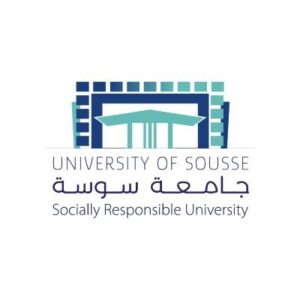
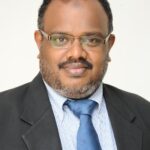
Ciraj Ali Mohammed
Dr. CIRAJ ALI MOHAMMED is the Head, Medical Education and Professor of Microbiology at College of Medicine and Health Sciences, National University of Science and Technology, Oman. He is the founding Director of the MAHE-FAIMER fellowship programme organised in collaboration with Foundation for advancement of International Medical Education and Research (FAIMER), Philadelphia and a faculty of the International FAIMER Institute (IFI), Philadelphia. He is a recipient of the American Society for Microbiology (ASM) – Early Career award (2006), Honourable Mention award (2010), UNESCO award for International Educators (2011) and Outstanding Mentor award (2012). Dr Ciraj is a Fulbright visiting scholar at the Department of Molecular biology and Infectious diseases, Florida International University, Miami and a recipient of the International fellowship in medical education (IFME). He has authored articles and chapters in medical education and medical microbiology and served on the editorial board of many journals. For the innovative student-centred pedagogic approaches in medical education, he was awarded the “Good Teacher Award”, eight times. He is currently the Secretary of the Academy of Health Professions Educators, India, the Chair of IndiPEN, (the Indian interprofessional education network) and a member of the Global confederation for interprofessional education and collaborative practice. Dr Ciraj also serves on the Advisory Board of the Network – Towards Unity for Health (TUFH).
- Priyanka Raj
- Saleena Ummer Velladath
- Mohammed Shafaee
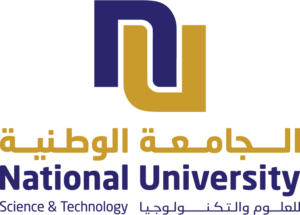
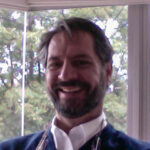
Francisco Lamus
Dr. Francisco Lamus is a Doctor at the Pontifical Javeriana University. He is a specialist in Pediatrics at the Colegio Mayor de Nuestra Señora del Rosario. Master in Public Health, and Interdisciplinary Studies Tulane University. Professor, Researcher and Project Manager, Center for Community Health Studies University of La Sabana (CESCUS). During the last 20 years
Dr. Lamus has promoted the Healthy Schools program, a program that works with more than 30 schools in the municipalities of the Sabana Centro of Bogotá, which later evolved into the Healthy Environments program. He was elected Chairman of The Network TUFH Organization (Towards Unity for Health), which for 30 years has sought to improve the health of communities in education, health services and research.
He currently leads the “Rural Health for Peace” project, which seeks to train community leaders who live in the rural areas of the municipalities of Icononzo and Chaparral, located in the department of Tolima, in order to guide them to be facilitators and become aware of the needs of the territories.
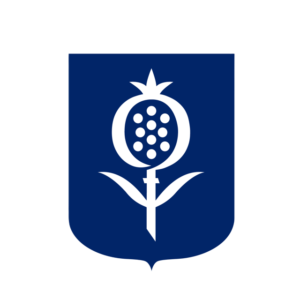

Asuma Ayisha Rahim
I am Dr Asuma Ayisha Rahim working as Professor and heading the Department of Community Medicine at Government Medical College,Kozhikode ,established in 1957 as the second medical college in Kerala. With over 3025 beds, it is currently the largest hospital in India and tenth largest in the world also catering to 4 neighboring districts as a center of excellence and referral. Competency based curriculum of National medical commission places emphasis on Family adoption program to provide an experiential learning opportunity to our medical students (annual intake of 250 students) towards community based health. We are committed towards creating a socially accountable medical school by designing and implementing evidence based strategies for prevention of Non communicable diseases(NCD’s) through behavior change communication in an urban community using medical students as ambassadors of change guided by our faculty in collaboration with the community leaders and other stakeholders. We decided to chart out an action plan targeting NCD prevention based on the local community leaders concern about rising cases of Diabetes ,Chronic kidney diseases and Coronary heart disease in urban coastal areas necessitating mushrooming of dialysis centers in the locality. We are also aware that compared to a robust organized health care delivery in the rural sector, Urban health particularly vulnerable groups are neglected to a large extent. There is also a phenomenon of NCD’s on the rise in Lower socio economic groups which needs to be addressed. All our team members are equivocal on the need for an intervention in the area raised as a felt need of the community.
- N. Asokan
- Padma Prabhu
- Tom Wilson
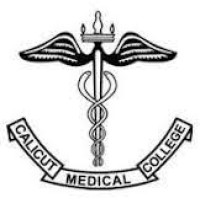
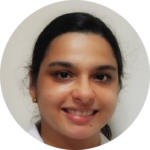
Nanditha Sujir
I am faculty at Manipal College of Dental Sciences Mangalore in India. With the team of Dr Srikant N and Dr Junaid Ahmed, and the support of our institute and faculty members, we are aiming to develop a framework to plan, execute and evaluate programs that contribute to social accountability of the institution and to honor the core principle of our university, Manipal Academy of Higher Education.
- N. Srikant
- Ahmed Junaid
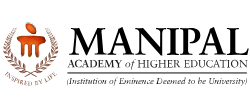
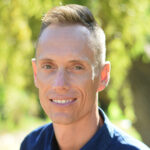
Renier Coetzee and Firdouza Waggie
Renier Coetzee, a pharmacist by training, is a passionate advocate for community engagement and social accountability. As a faculty member at the School of Public Health at the University of the Western Cape, he has dedicated his career to addressing healthcare challenges through inclusive and collaborative approaches.
Renier’s research has primarily centered on patient safety, with a focus on developing innovative strategies to enhance healthcare quality and mitigate risks in the field of antimicrobial stewardship. His work has not only contributed to academic advancements but has also translated into tangible improvements in healthcare practices.
Beyond academia, Renier is actively involved in various non-governmental organizations that align with his commitment to public health. His expertise has been instrumental in designing and implementing community-oriented health programs, specifically to combating tuberculosis and advocating for improved infection control measures.
Through his multifaceted contributions to academia, research, and NGO work, Renier exemplifies a holistic approach to public health that addresses the broader societal determinants of well-being.
~
Firdouza Waggie is Associate Professor and Deputy Dean: Clinical and Community Engagement and Director of the Interprofessional Education Unit (IPEU) in the Faculty of Community and Health Sciences at the University of the Western Cape (UWC), South Africa.
- Firdouza Waggie
- Labeeqa Jaffer
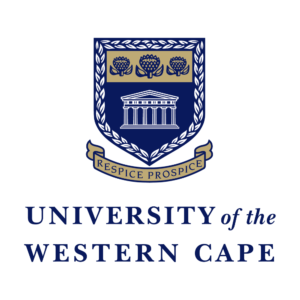
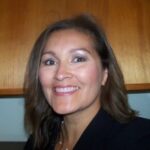
Karen Cook
Experienced Office Lead with a demonstrated history of working in the higher education industry. Skilled in Nonprofit Organizations, Community Engagement, Team Building, Public Speaking, and Facilitation. Experienced professional with a MBA focused in Business Administration and Management from University of Manitoba.

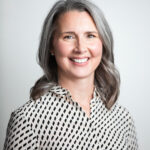
Kathryn Dong
Dr. Kathryn Dong is the Social Accountability Lead for the Faculty of Medicine & Dentistry and the Endowed Chair in Emergency Medicine Research at the University of Alberta in Edmonton, Alberta, Canada. In addition to her training in emergency and addiction medicine, she also completed a Masters in Population Health at the University of Alberta. Her clinical work is as an inpatient addiction medicine physician at a large, urban hospital. Her work focuses on improving health care access and outcomes for people who use substances and seek care in emergency departments and acute care settings.
- Katherine Smith
- Minn Yoon
